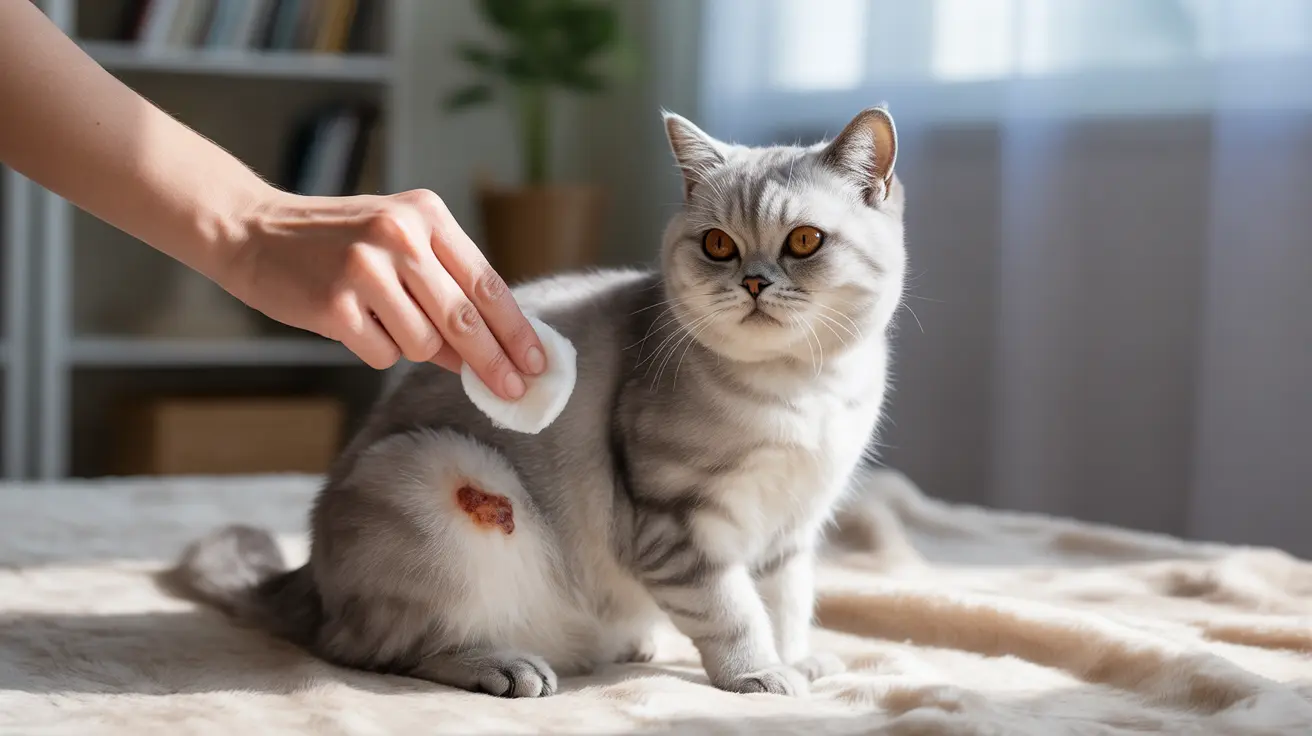The Healing Properties of Coconut Oil for Cat Wounds
Coconut oil contains natural compounds that make it particularly effective for wound care. Its antibacterial, antiviral, and antifungal properties help protect minor wounds from infection while supporting the healing process. The lauric acid content, in particular, provides powerful antimicrobial effects that can help keep the wound site clean.
The oil's moisturizing properties help prevent wound sites from becoming too dry or forming uncomfortable scabs. This moisture retention can promote faster healing and reduce the likelihood of scarring.
Proper Application Methods for Wound Care
When using coconut oil for cat wounds, proper application is crucial for optimal results:
- Clean the wound area thoroughly with saline solution
- Apply a thin layer of organic, unrefined coconut oil using a clean cotton ball
- Consider covering the area with a light bandage to prevent licking
- Monitor the wound site for signs of healing or infection
- Reapply 2-3 times daily or as recommended by your veterinarian
Additional Benefits Beyond Wound Care
While primarily used for wound treatment, coconut oil offers several other health benefits for cats:
- Improves skin and coat health
- Reduces inflammation and allergic reactions
- Supports digestive health
- Boosts immune system function
- Helps with hairball prevention
Important Safety Considerations
Despite its benefits, coconut oil should be used with caution:
- Only use on minor wounds; seek veterinary care for serious injuries
- Watch for signs of allergic reactions or skin sensitivity
- Prevent excessive ingestion during grooming
- Start with small amounts to test your cat's tolerance
- Use only high-quality, organic virgin coconut oil
When to Avoid Coconut Oil Treatment
Some situations require immediate veterinary attention rather than home treatment with coconut oil:
- Deep cuts or puncture wounds
- Infected wounds showing pus or excessive redness
- Wounds near sensitive areas like eyes or joints
- Injuries accompanied by fever or behavioral changes
- Burns covering large areas
Frequently Asked Questions
How can I safely use coconut oil to treat minor wounds on my cat?
Clean the wound area first, then apply a thin layer of organic coconut oil using a clean cotton ball. Monitor the site for healing progress and avoid using on deep or infected wounds.
What are the benefits of applying coconut oil to my cat's skin and coat?
Coconut oil moisturizes the skin, reduces inflammation, helps prevent infections, and can improve coat shine and texture. It also helps with various skin conditions and allergies.
Can coconut oil help reduce inflammation and pain in cat wounds?
Yes, coconut oil has natural anti-inflammatory properties that can help reduce swelling and discomfort around wound sites, making the healing process more comfortable for your cat.
Are there any risks or side effects of using coconut oil on cats, especially for wound care?
The main risks include possible digestive upset if ingested in large amounts, potential allergic reactions, and the risk of delayed proper treatment if used inappropriately on serious wounds.
How much coconut oil should I give my cat orally or apply topically for wound healing?
For topical application, use a thin layer on the affected area 2-3 times daily. If giving orally, start with very small amounts (1/8 teaspoon) and only under veterinary guidance.






